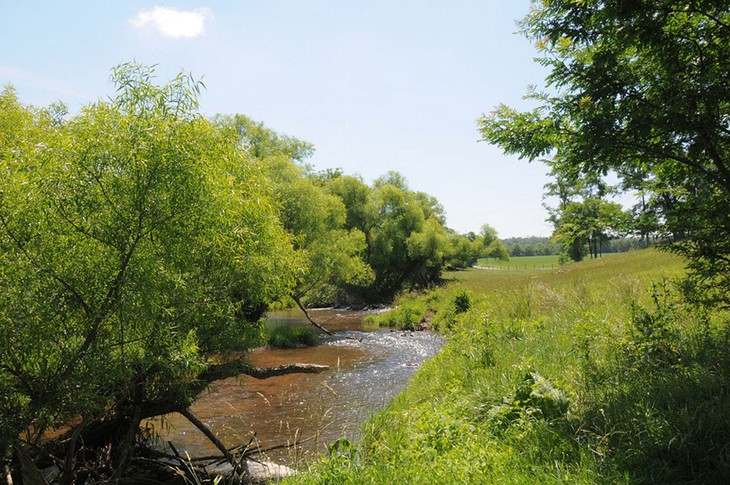UNIVERSITY PARK – Farmers in 14 Central Pennsylvania counties will have the opportunity to highlight the steps they’ve taken to protect and enhance water quality for local streams and the Chesapeake Bay.
The survey, sponsored by several agricultural organizations including Pennsylvania Farm Bureau (PFB), Penn State and governmental agencies that have partnered to develop it will ask producers in Bedford, Centre, Columbia, Cumberland, Dauphin, Huntingdon, Juniata, Lebanon, Lycoming, Mifflin, Northumberland, Perry, Snyder and Tioga counties to document conservation practices that they have adopted to promote water quality and soil health in the bay watershed.
“Pennsylvania agriculture has done much to improve water quality in our local rivers and streams and the Chesapeake Bay,” said Matt Royer, director of the Agriculture and Environment Center in Penn State’s College of Agricultural Sciences. “Yet that positive story is often not told. We are giving farmers a chance to tell that story.”
Conservation practices on an estimated 80% of Pennsylvania farms in the bay watershed remain unreported. Farmers who filled out a similar survey in 2016 will have a chance to report new practices installed since then, report on annual practices such as nutrient management and cover crops, and report on the continued success of previously reported practices.
The survey is being administered by the Penn State Agriculture and Environment Center, which will mail a letter this week with the survey web link to farmers in the 14 counties encouraging their participation. College of Agricultural Sciences researchers will analyze the survey responses, and cumulative results will be provided to Pennsylvania’s Chesapeake Bay Office to document the practices farmers have adopted to conserve soil and water and to protect water quality.
Ten percent of the participants will be selected randomly for farm visits by Penn State Extension to assess inventory results and help researchers better understand the methods used and challenges encountered when adopting various management practices.
Responses will be kept completely confidential and never will be associated with a farmer’s name or location, according to Royer, the lead researcher for the survey.
“The results reported to Pennsylvania’s Chesapeake Bay Office will be provided in summary form and will not include any names or locations of survey participants,” Royer said.
Rick Roush, dean of the College of Agricultural Sciences, noted that many of the conservation practices that farmers have implemented over the years are not accounted for in tracking the progress made toward meeting priority water quality goals, including cleaning up the Chesapeake Bay.
“This is especially true where farmers have adopted these practices on their own initiative and by using their own dollars,” Roush said. “This survey will allow farmers in 14 high priority counties in the Chesapeake Bay watershed to report conservation practices implemented on their farms so the agricultural community can get the credit it deserves for improving water quality. We also hope it will help us set priorities for research and extension educational programs that can assist producers in identifying and adopting appropriate best management practices.”
Farmers are encouraged to fill out the survey online at https://farm-bmp.psu.edu.
Participants are asked to submit their responses by April 1.

